MCQ ON ENERGY FLOW class 12 for NEET | ENERGY FLOW class 12 | MCQ ENERGY FLOW with Answer | Check the below NCERT MCQ question for class 12 Biology based on the with Answers.
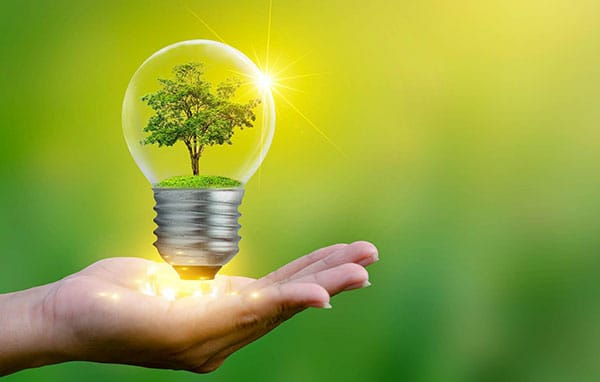
MCQ ON ENERGY FLOW class 12 for NEET
MCQ on ENERGY FLOW class 12 Biology with answers were prepared based on the latest pattern.We have provided class 12 Biology MCQs questions on ENERGY FLOW with Answers to help students understand the concept very well.
MCQ ON ENERGY FLOW is useful for NEET / CSIR / UGC / CBSE / ICSE / AIIMS / EXAM / AFMC EXAM / STATE LEVEL MEDICAL EXAM 2022-23, 2023-24
Introduction:
Except for the deep sea hydro thermal ecosystem sun is the only source of energy for all ecosystems on earth. A incident solar radiation less than 50% of it is photosynthetically active radiation. We know that plants and photosynthetic bacteria fix suns radiant energy to make food from simple inorganic materials. Plant capture only 2-10 percentage of the PAR and this small amount of energy sustains the entire living world. So it is very important to know how the solar energy captured by plants flow through different organisms of an ecosystems. All organisms dependent for their food on producers, either directly or indirectly. So you find any direction flow energy from the Sun to Producers, then to consumers, further ecosystems are not exempt from the second law of thermodynamics, they need a constant supply of energy to synthesize the molecules they required to counter at the universal tendency to increasing disorderliness. The green plant in the ecosystem are called producers. In a terrestrial ecosystem , major producers are herbaceous and woody plants. Like wise produces in aquatic ecosystem are various species like phytoplankton ,algae and higher plants.
MCQ ON ENERGY FLOW class 12 for NEET
1. The green plant in the ecosystem are called
(a) producers
(b) consumers
(c) herbivores
(d) stratification
Ans (a) producers
2. All animals depend on plants directly or indirectly for their food needs , they are hence called
(a) consumers
(b) producers
(c) decomposers
(d) all the above
Ans. (a) consumers
3. We know that plants and photosynthetic bacteria fix suns radiant energy to make food from simple inorganic materials plants capture only of the…… . … photosynthetically active radiation (PAR) and this small amount of energy sustain entire living world
(a) 2-10 percentage
(b) 5-10 percentage
(c) 6-8 percentage
(d) 4-8 percentage
Ans. (a) 2-10 percentage
4. The consumer that feed herbivores are called
(a) primary carnivores
(b) secondary consumers
(c) both a and b
(d) none of the above
Ans.(c) both a and b
5. Those animals that depend on the primary carnivore for food are labelled
(a) secondary carnivores
(b) primary consumers
(c) productivity
(d) decomposers
Ans.(a) secondary carnivor se
6. The detrious food chain begins with the
(a) dead organic matter
(b) herbivorous
(c) primary consumers
(d) carnivorous
Ans.(a) dead organic matter
7. Decomposes which are heterotrophic organisms mainly
(a) bacteria and fungi
(b) bacteria and virus
(c) bacteria and algae
(d) bacteria and protozoa
Ans.(a) bacteria and fungi
8. In an ecosystem…………….. is the major conduit for energy flow.
(a) GFC
(b) DFC
(c) Producers
(d) all the above
Ans.(a) GFC
9. In a terrestrial ecosystem a much larger fraction of energy flow through …….. than through the GFC.
(a) DFC
(b) decomposers
(c) saprotrophs
(d) all the above
Ans. (a) DFC
10. The natural interconnection of food chains make it a
(a) decomposers
(b) foodweb
(c) trophic level
(d) standing crop
Ans. (b) food web
11. Based on the source of nutrition or food organism occupy a specific place in the food chain that is known as their
(a) trophic level
(b) primary consumer
(c) Parasitism
(d) Predatorship
Ans.(a) trophic level
12. The first trophic levels are
(a) herbivores
(b) primary consumer
(c) secondary consumer
(d) producers
Ans . (d) producers
13. Second and third trophic levels of food chain are
(a) herbivores and carnivores
(b) carnivores and parasite
(c) herbivores and predators
(d) carnivores and omnivores
Ans.(a) herbivores and carnivores
14. Amount of energy in a food chain …….. at successive trophic levels
(a) increasing
(b) decreases
(c) fragmentation
(d) leaching
Ans. (b) decreases
15.Each trophic level has a certain mass of living material at a particular time called as
(a) biomass
(b) standing crop
(c) DFC
(d) GFC
Ans.(b) standing crop
16. The number of troohic level in the grazing food chain is restricted as the transfer of energy flow, 10% law only- 10% of energy is transferred to its trophic level from lower trophic level.It is given by
(a) Lindemann
(b) Newton
(c) Edison
(d) Tansley
Ans.(a) Lindemann
17. In grazing food chain carnivores are
(a) primary producers
(b) secondary producers
(c) primary consumers
(d) secondary consumers
And.(d) secondary consumers
18. In an ecosystem standing crop at any time consists of
(a) total living matter
(b) total detritus
(c) both detritus and living matter
(d) total nutrients
Ans. (a) total living matter
19. Energy flow in ecosystem is
(a) unidirectional
(b) bidirectional
(c) multi directional
(d) stable
Ans.(a) unidirectional
ALSO READ:-
● YOU CAN WATCH BIOLOGY SIR Youtube channel
20. Energy produced level of producers is 1000 jule the energy available for the secondary consumers is
(a) 1000 jule
(b) 100 Jule
(c) 10 jule
(d) 1 jule
Ans.(c) 10 jule
21. Energy and nutrients enter community through
(a) producers
(b) primary consumers
(c) decomposers
(d) sunlight
Ans.(a) producers

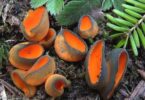
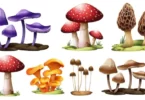
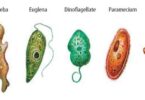
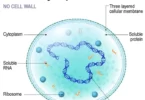
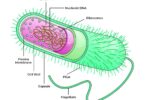
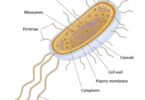
Leave a Comment